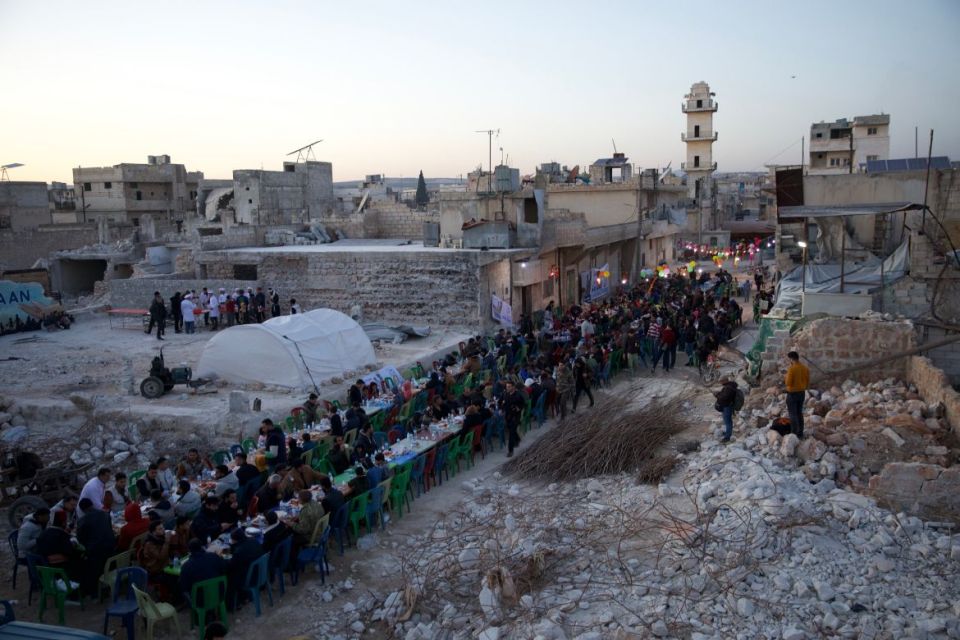
A suhour banquet is held before sunrise and the start of the daily Ramadan fast in one of the districts that was destroyed by the earthquake in Atareb in the western countryside of Syria's Aleppo province. [Ali Haj Suleiman/Al Jazeera]
Idlib, Syria – It is the middle of Ramadan across the Muslim world, including in the rebel-held Idlib region of northwestern Syria, although the celebrations are muted there with markets quiet and food prices skyrocketing.
The economic situation is deteriorating day by day, especially after devastating earthquakes struck on February 6.
According to a statement issued by the Response Coordination Group, the price of meat in northwestern Syria has gone up by 57 percent during the month of Ramadan and vegetables and fruit have risen by 55 percent.
“The markets are definitely quieter this Ramadan,” said Abu Hussein, a supermarket owner in the city of Idlib. “The price of food is higher because merchants are monopolising and hoarding, controlling the price without thinking about how hard the living conditions are for the people in the region.”
The population in northwestern Syria is about 4.5 million people, 2.9 million of whom are internally displaced, according to the UN Office for the Coordination of Humanitarian Affairs.
“This Ramadan is the hardest for us so far because of the financial crisis we’re experiencing and our dependence on the meals provided by relief organisations,” said Mariam Haloul, a mother of four whose house was destroyed in the earthquakes and who now lives near Salqin in a camp for survivors of the disaster.
Humanitarian organisations working in the area are trying to help people affected by the quakes by providing food for iftar, the meal at sundown when Muslim break their daylong fast during Ramadan, or by holding community iftar banquets, like one held in Atareb, west of Aleppo.
“The iftar banquet that was held in the city, which included more than 1,000 people, aimed to bring the people of the city together in a spiritual atmosphere, especially after the earthquakes, which claimed the lives of dozens of the city’s residents, especially in the neighbourhood where the iftar was held, where three buildings were destroyed and 45 people were killed,” Mahmoud Abu al-Majd, an activist from Atareb, said.
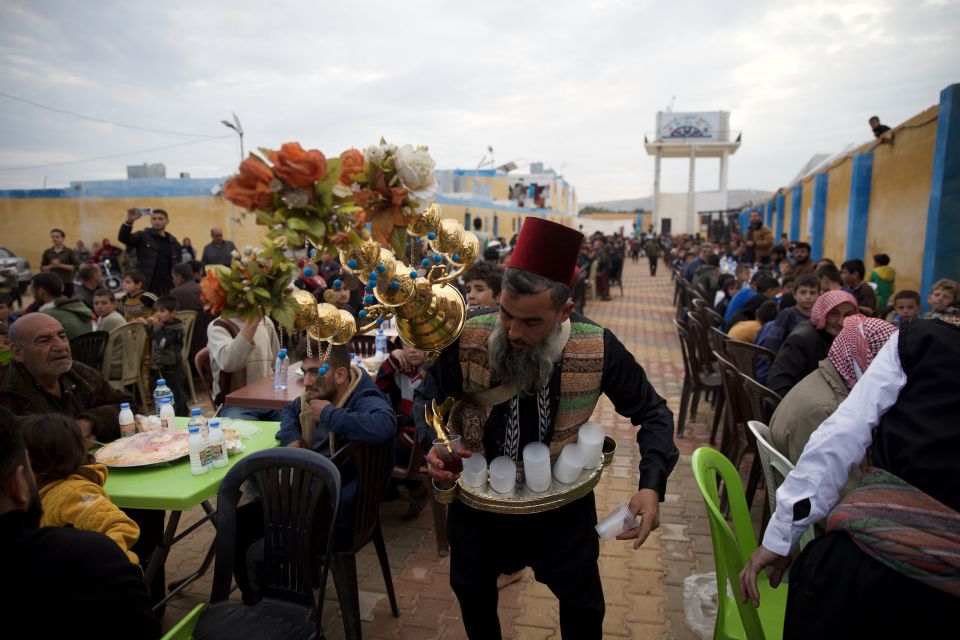 A man hands out traditional Ramadan drinks during a communal iftar near the Idlib village of Killi. [Ali Haj Suleiman/Al Jazeera] Advertisement
A man hands out traditional Ramadan drinks during a communal iftar near the Idlib village of Killi. [Ali Haj Suleiman/Al Jazeera] Advertisement
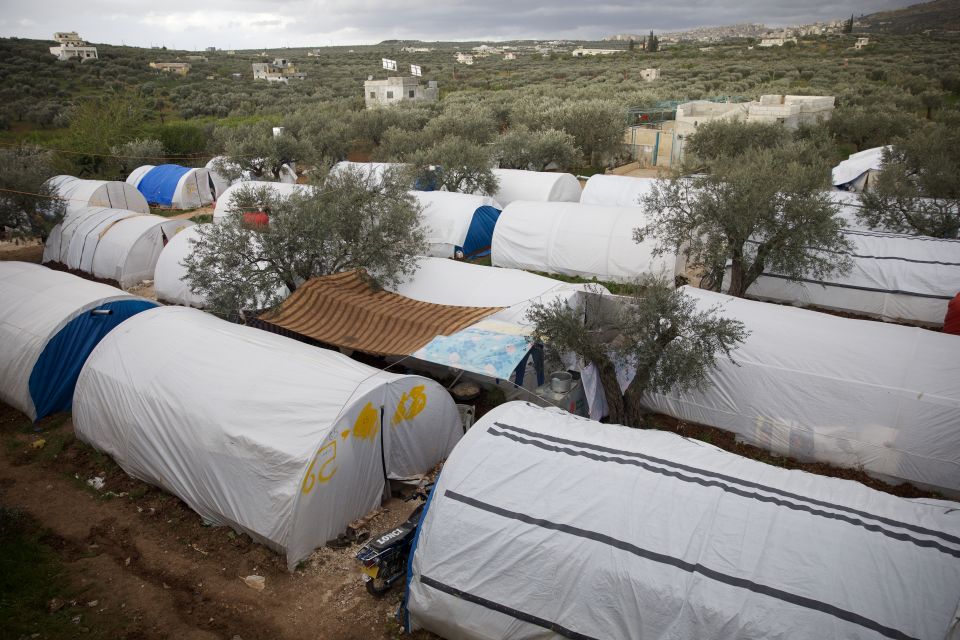 Millions of Syrians displaced by war have fled to northwestern Syria, but many more people there are living in tents this Ramadan after magnitude 7.8 and 7.6 earthquakes struck the region on February 6. [Ali Haj Suleiman/Al Jazeera]
Millions of Syrians displaced by war have fled to northwestern Syria, but many more people there are living in tents this Ramadan after magnitude 7.8 and 7.6 earthquakes struck the region on February 6. [Ali Haj Suleiman/Al Jazeera]
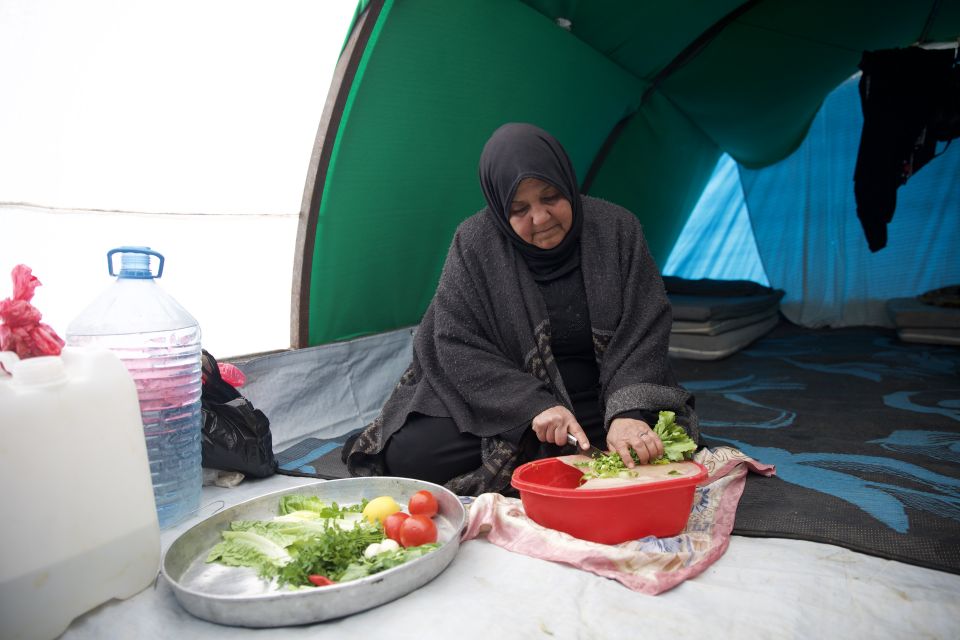 Mariam Haloul prepares a salad before iftar on the floor in her family's tent at a camp for quake survivors near Salqin in the northern countryside of Idlib province. [Ali Haj Suleiman/Al Jazeera]
Mariam Haloul prepares a salad before iftar on the floor in her family's tent at a camp for quake survivors near Salqin in the northern countryside of Idlib province. [Ali Haj Suleiman/Al Jazeera]
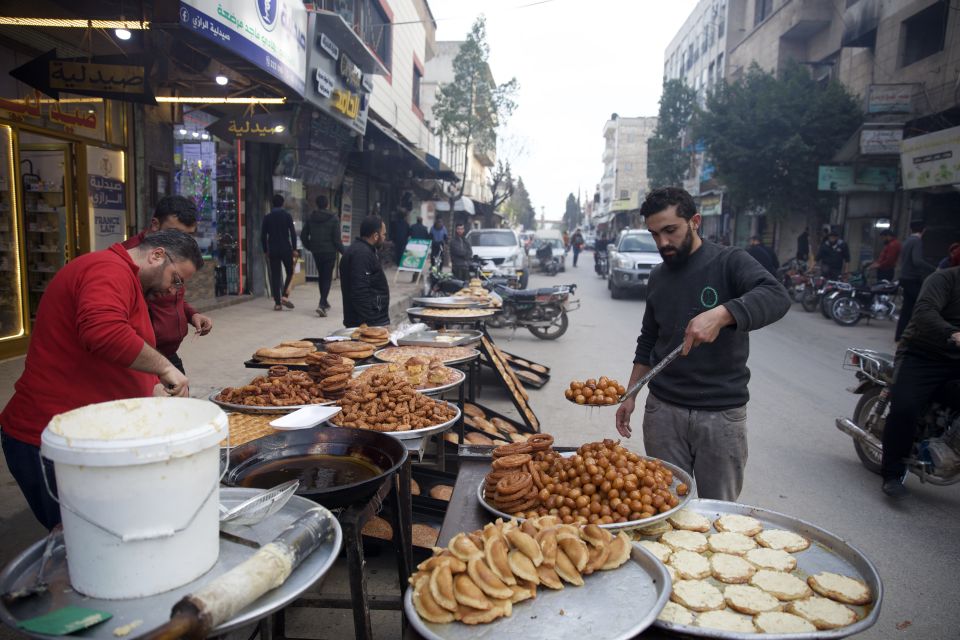 Desserts are sold during Ramadan at a market in the city of Idlib, capital of Idlib province. [Ali Haj Suleiman/Al Jazeera]
Desserts are sold during Ramadan at a market in the city of Idlib, capital of Idlib province. [Ali Haj Suleiman/Al Jazeera]
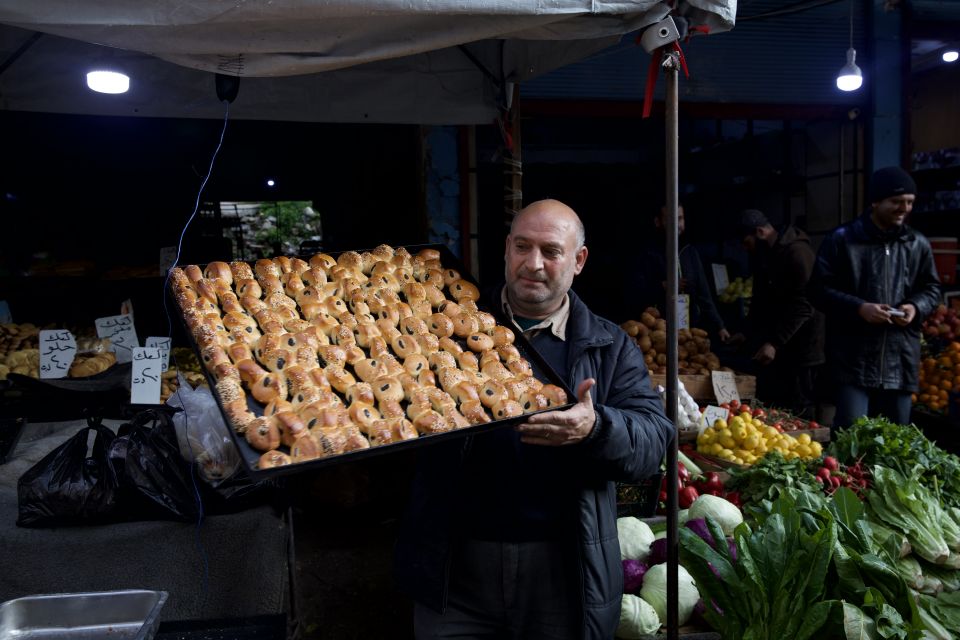 The holy month of Ramadan is a time for Muslims to enjoy special foods when they break their daily fasts, but the markets in northwestern Syria are quiet this year because of February's earthquakes and skyrocketing prices. [Ali Haj Suleiman/Al Jazeera]
The holy month of Ramadan is a time for Muslims to enjoy special foods when they break their daily fasts, but the markets in northwestern Syria are quiet this year because of February's earthquakes and skyrocketing prices. [Ali Haj Suleiman/Al Jazeera]
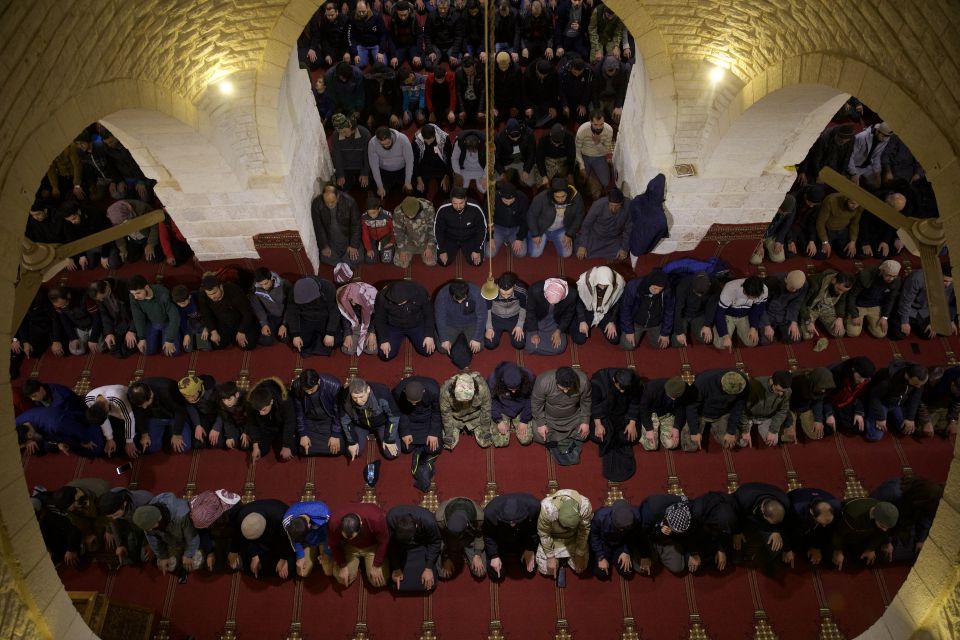 Muslims pray in one of the mosques in the city of Idlib. [Ali Haj Suleiman/Al Jazeera] Advertisement
Muslims pray in one of the mosques in the city of Idlib. [Ali Haj Suleiman/Al Jazeera] Advertisement
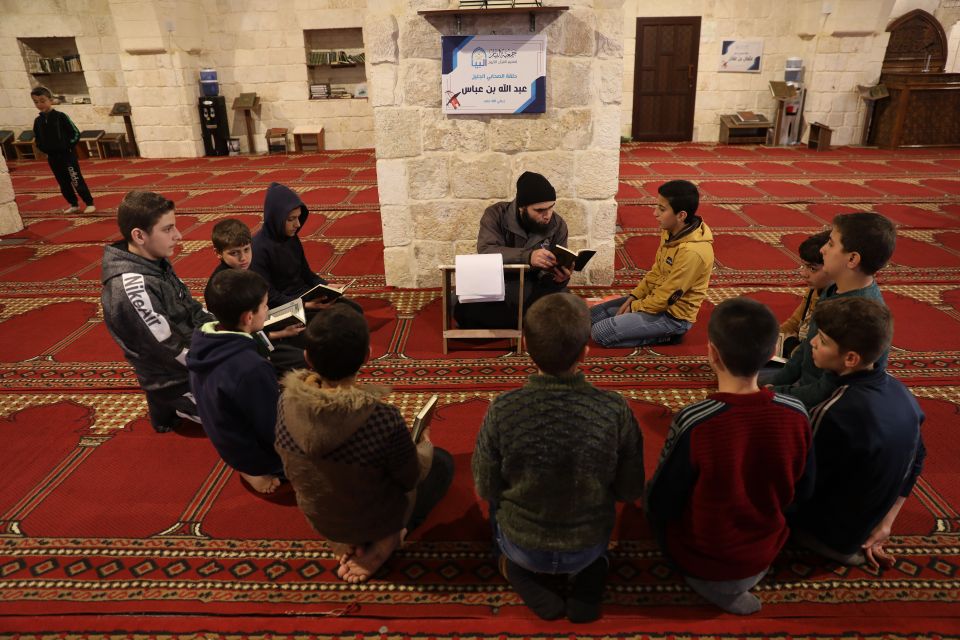 Children attend a Quran lesson at a mosque in the city of Idlib. [Ali Haj Suleiman/Al Jazeera]
Children attend a Quran lesson at a mosque in the city of Idlib. [Ali Haj Suleiman/Al Jazeera]
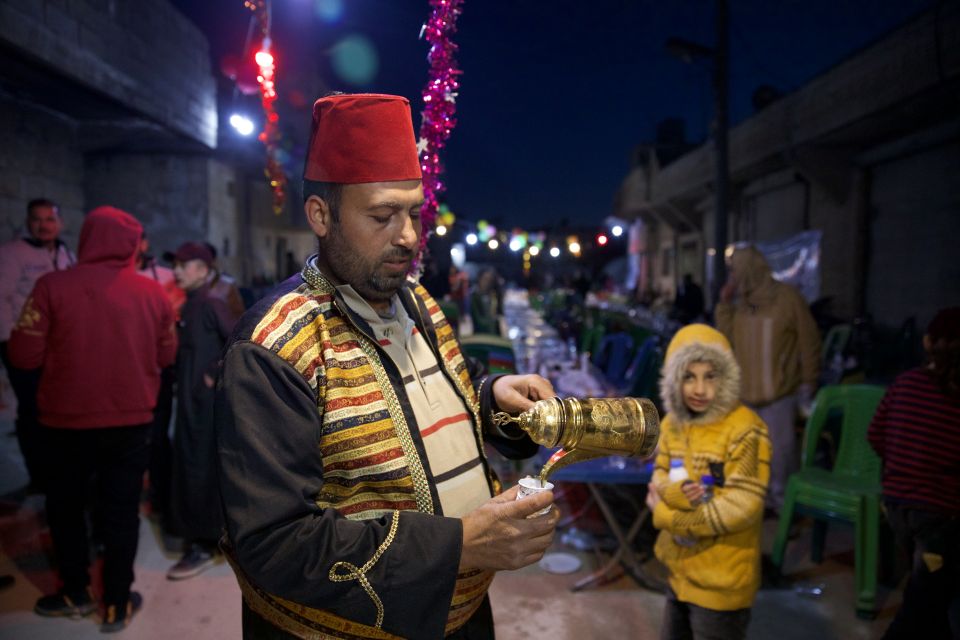 A man offers passers-by traditional coffee after iftar in Atareb. [Ali Haj Suleiman/Al Jazeera]
A man offers passers-by traditional coffee after iftar in Atareb. [Ali Haj Suleiman/Al Jazeera]
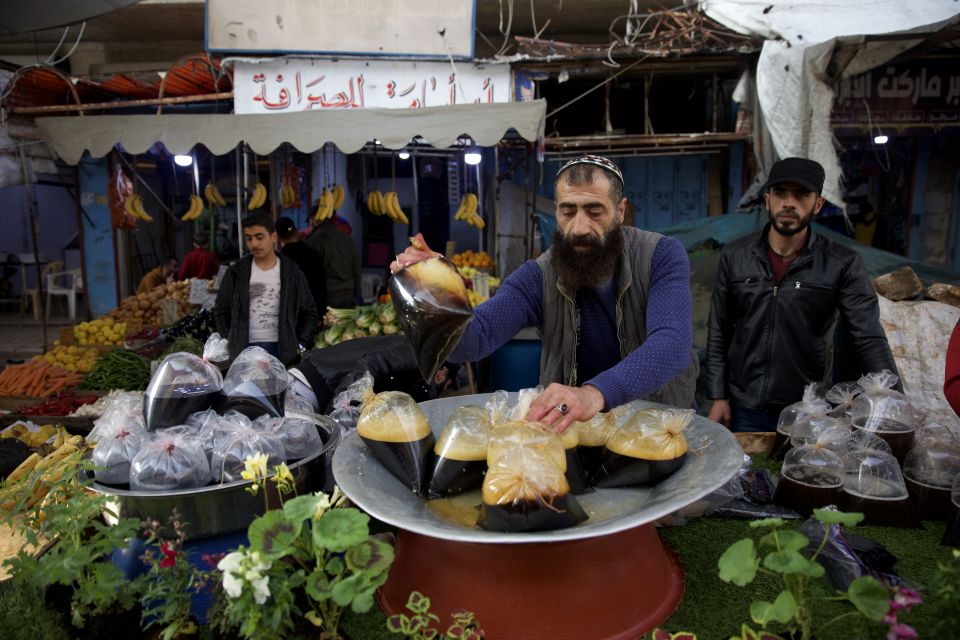 A man sells a traditional Ramadan drink in Ariha, which is often subjected to shelling by Syrian government forces. [Ali Haj Suleiman/Al Jazeera]
A man sells a traditional Ramadan drink in Ariha, which is often subjected to shelling by Syrian government forces. [Ali Haj Suleiman/Al Jazeera]
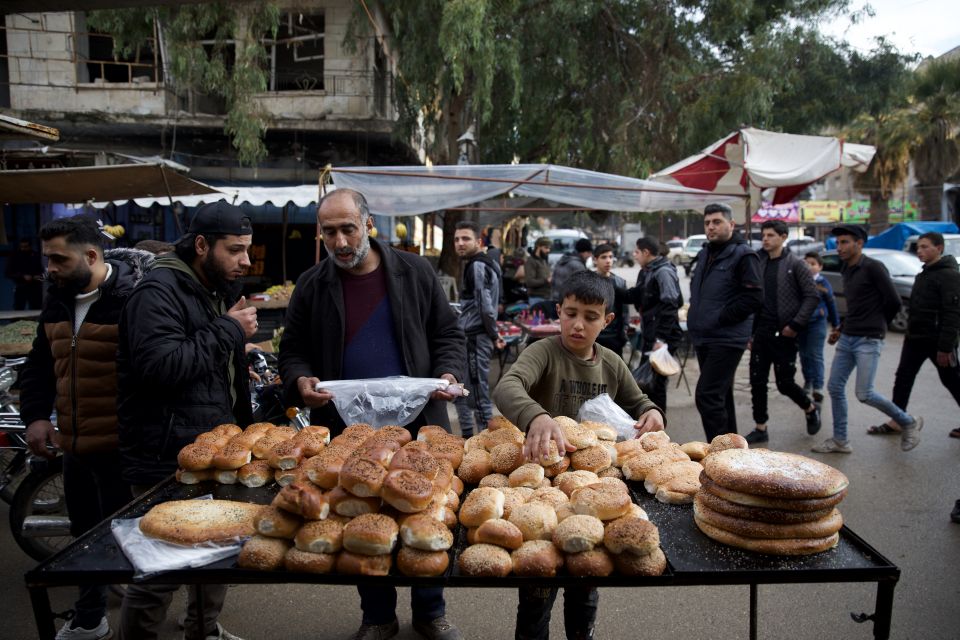 A man sells baked goods in Ariha. [Ali Haj Suleiman/Al Jazeera]
A man sells baked goods in Ariha. [Ali Haj Suleiman/Al Jazeera]
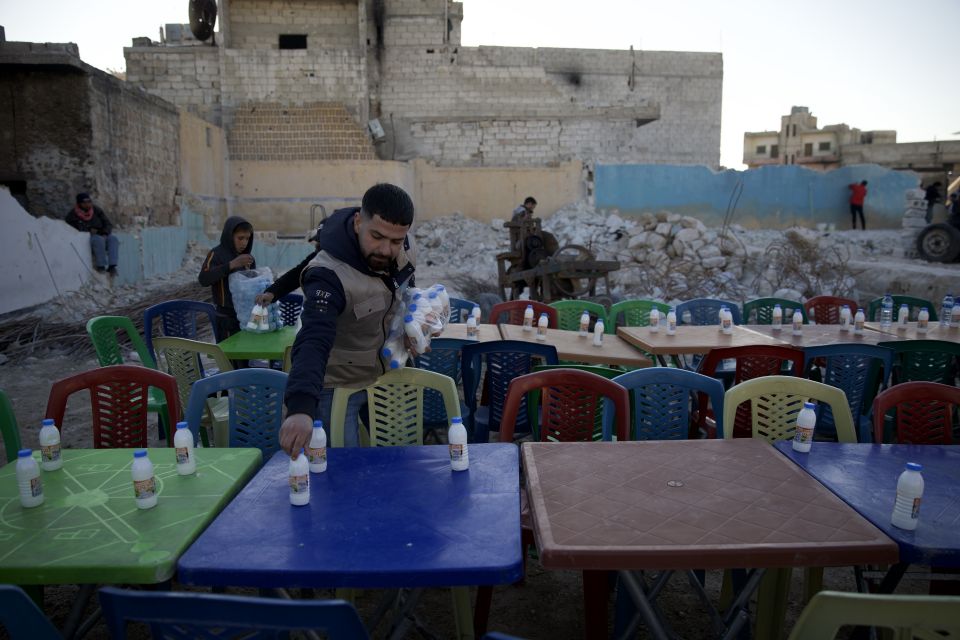 A community iftar banquet is prepared in one of the districts destroyed in February's earthquakes in Atareb. [Ali Haj Suleiman/Al Jazeera]
A community iftar banquet is prepared in one of the districts destroyed in February's earthquakes in Atareb. [Ali Haj Suleiman/Al Jazeera]
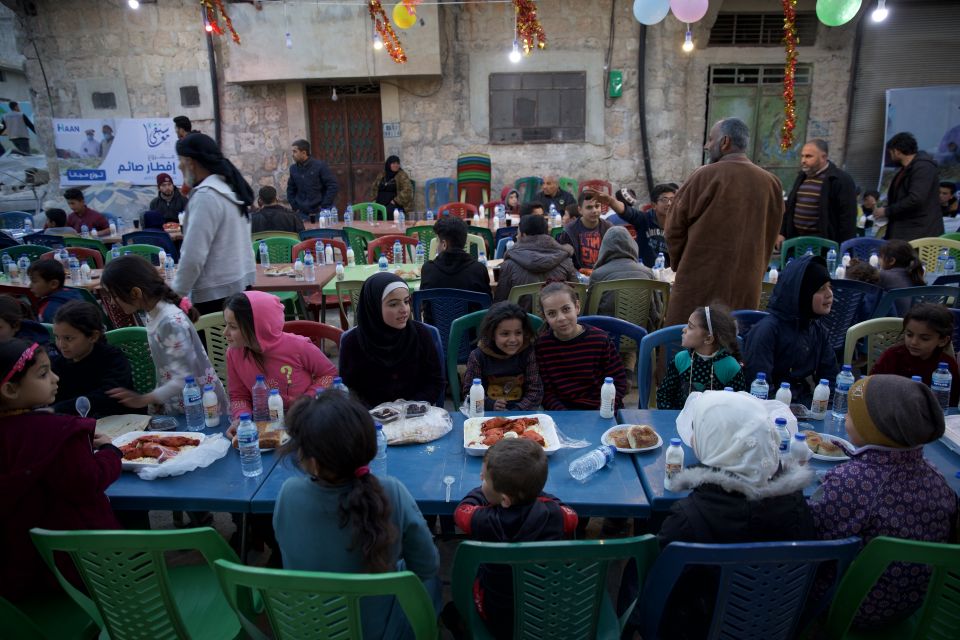 “The iftar banquet aimed to bring the people of the city together in a spiritual atmosphere, especially after the earthquake,” says Mahmoud Abu al-Majd, an activist from Atareb. [Ali Haj Suleiman/Al Jazeera]
“The iftar banquet aimed to bring the people of the city together in a spiritual atmosphere, especially after the earthquake,” says Mahmoud Abu al-Majd, an activist from Atareb. [Ali Haj Suleiman/Al Jazeera]
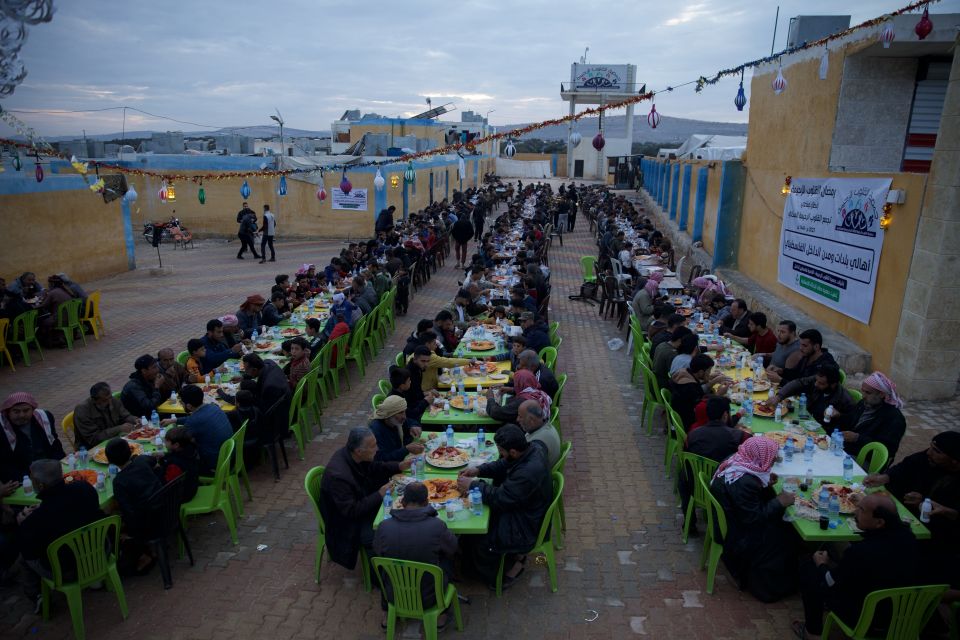 An iftar is held in a small town for displaced Syrians near Killi in northern Idlib. [Ali Haj Suleiman/Al Jazeera]
An iftar is held in a small town for displaced Syrians near Killi in northern Idlib. [Ali Haj Suleiman/Al Jazeera]
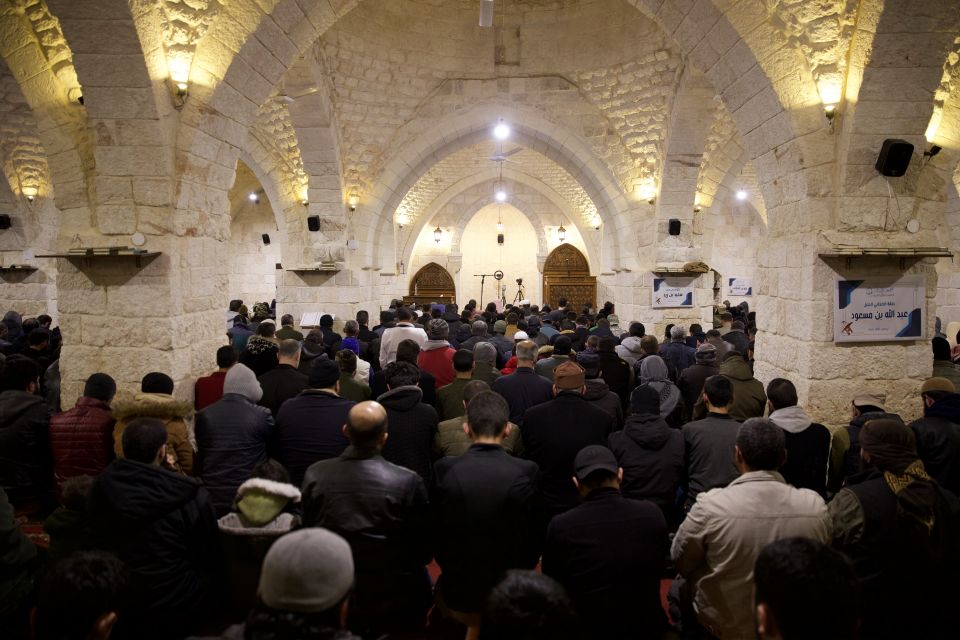 Muslims worship in the mosque in Jandaris, a town in Aleppo province.
Muslims worship in the mosque in Jandaris, a town in Aleppo province.








